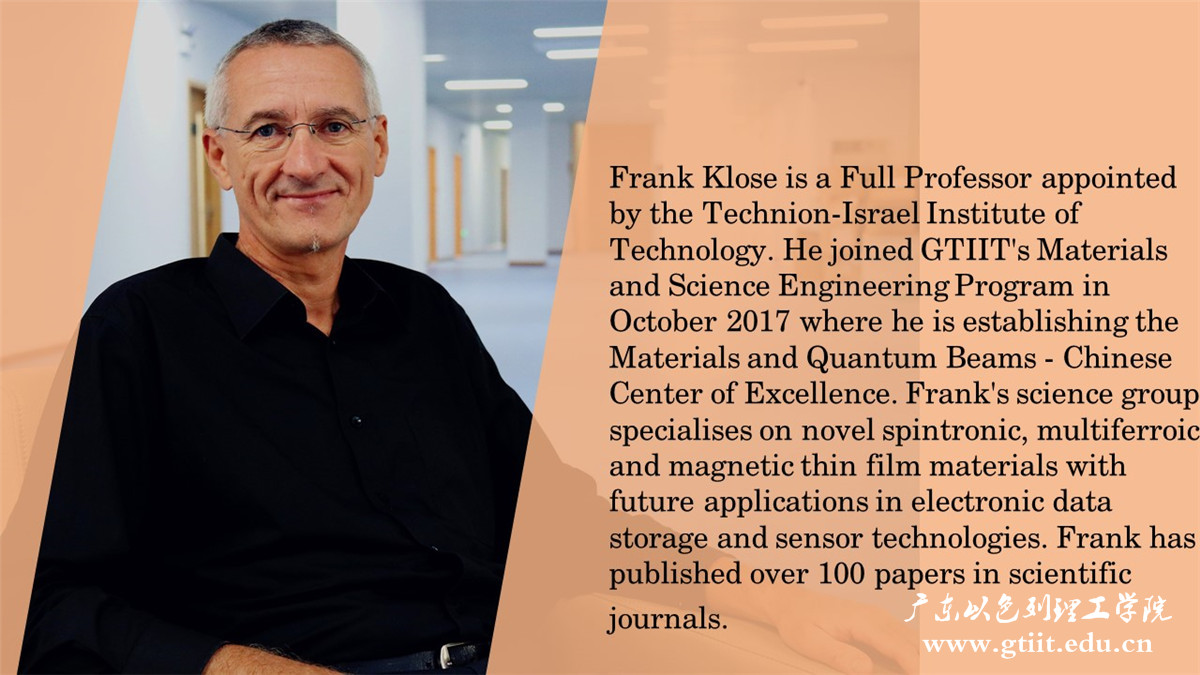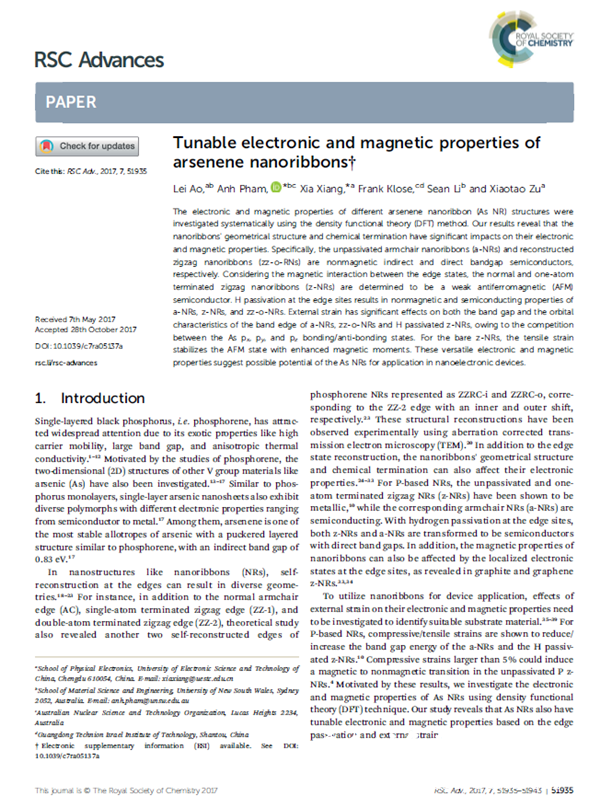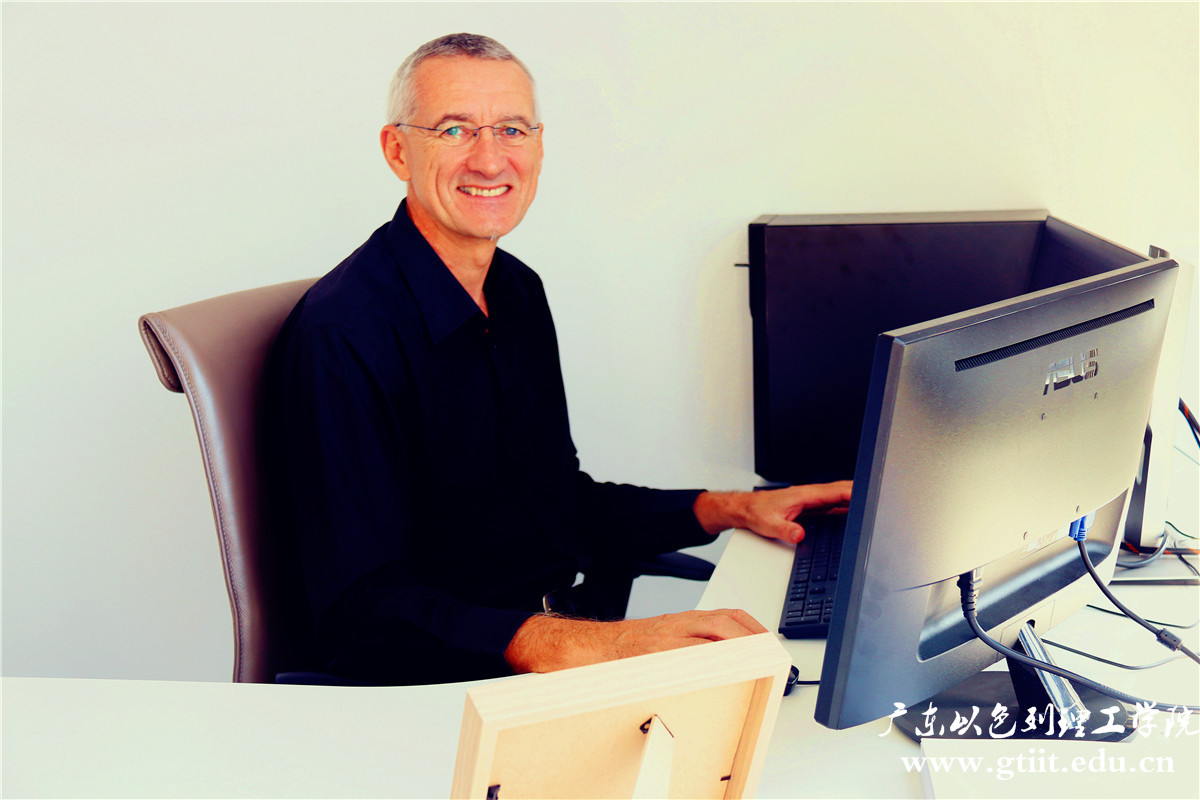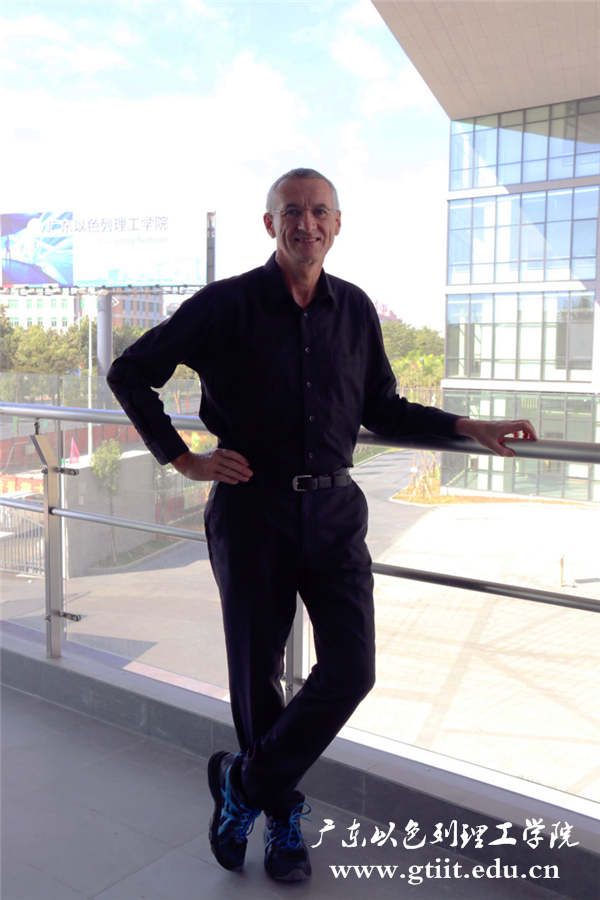PostTime:11/10/2017

Can you briefly introduce your research to us?
My research is about future data storage materials. Currently, over 90% of the world's digital data is stored in form of magnetic thin films on computer hard disc drives. In the future, the amount of digital data will soar tremendously, e.g. due to ultrahigh-resolution TV formats. New materials will need to be developed to cope with these incredible amounts of data.
My group is currently working on a project where ion implantation is used to create magnetic storage bits that have dimensions of only several 10 nanometers. Such material would allow to store 1000 movies in high-definition format on a fingernail sized area. Amazing, isn't it?
Why did you choose to study physics? What does it mean to you?
Since I was a child, I was very interested in technique and engineering. Initially I planned to go into an engineering field after high school - mechanical or electrical engineering. But then I thought, physics is the basis for engineering - understanding the physics of something gives you a deeper understanding of how things really work and why. So I chose to study physics. I have learned how nature works, how you can, while coping with the principles of nature, develop new things. I was curious about what nature has on offer and there are always new surprises!
My interests in materials science grew in the last two years of my diplom study at the University of Goettingen, Germany. At that time, we were required to do a lot of practical work, not only dealing with theoretical calculations, but putting something together as a technical apparatus. I designed and assembled a machine that can deposit very thin materials - as thin as a layer of atoms. And I found this so interesting that I went into a Ph.D. program to further study this field.
* A Diplom is an academic degree in the German-speaking countries. Germany, Austria, and Switzerland and a similarly named degree in some other European countries including Bulgaria, Belarus, Bosnia and Herzegovina, Croatia, Estonia, Finland (only for engineers), France, Greece, Hungary, Russia, Romania, Serbia, Macedonia, Slovenia, and Ukraine.
Did do you have a vision of your career after completing your PhD degree?
I was open to both academic and industry jobs at that time. I applied to some positions and I actually got an offer from Sony in Japan. But I decided to become a postdoctoral fellow at Hahn-Meitner Institute Berlin, Germany, a very prestigious institute, to do materials research using a nuclear reactor. Later, I went to Argonne National Laboratory, Chicago, to continue similar work. Now I am a professor for several years. I always encourage younger people from the west to take the opportunities overseas, now particularly in China. Similarly, young people from China should grasp overseas experiences, opportunities that were unavailable in the past. Gaining these work and cultural experiences will benefit when starting your career after graduation. You may even start your own business - do something unique and become very successful.
What factors contribute to your success today, as an internationally renowned professor? How can the young scientists grasp the opportunity when it comes?
In contrast to what some students believe, being a successful professor is not a particularly easy life; working more than 50 hours per week is my routine for decades now. But it is also big fun too to be able to realize your own research ideas. You actually lose the sense of working hours! When opportunity comes, you need to be there at the right time. I would like to give you an example from my previous job. After the financial crisis in 2008, the economy seemed to be down quite a bit, so the Australian government wanted to spend money on R&D in order to provide some stimulus. To grasp the chance, we needed to quickly come up with a program that would very likely be successful and where we could spend money in a serious and long-term beneficial way. It was not only luck that our proposal was picked, mostly it was hard preparation work!
As always in life, good preparation will pay off. A scientist who wants to be successful needs to put forward credible research proposals for getting his/her research funded - often not just one proposal, but several to increase the overall chances. This will always multiply. It is all a matter of probability.
However, it is not over yet when somebody gives you money for an R&D project, you need to fulfill your promises. A good scientist also needs to be a good project manager. You need to write reports to illustrate what you have done with the funding – what equipment you bought, whom you hired, etc. Young people need to learn how to manage a project – the preparation phase, the working procedures, the reporting procedure and so on. As a scientist you have succeeded when your results are published in reputable international journals, when you give talks at international conferences and when your students succeed with their degrees…… all of this demonstrates to the agency that you actually have brought the project to a successful end. Only after being successful with initial smaller projects, you will have a chance to launch bigger projects to further advance your career.

Frank Klose's latest article published on RSC Advances
Why did you come to China and GTIIT?
Everybody should be exposed to different cultures. I was born in Germany and lived the first thirty years of my life in Germany. I really wanted to experience totally different cultures and scientific studies. Each culture has particularities. For example, Americans may have different perspectives on things compared to people from France or from Germany. If you develop a deeper understanding for the many cultures we have around the globe, this is worth a lot!
I finished my doctoral degree in Germany but a large part of the research was done in France. Then I moved to America and later Australia, and now China - I have been teaching at the City University of Hong Kong for three years. I was impressed by the Chinese culture.
GTIIT is attractive to me. This is a new university with the distinctive feature that it is a cooperation project between China and Israel, so I will experience both cultures. I was also curious about how Technion-Israel, STU, the city of Shantou, the Li Ka-Shing Foundation as well as provincial and state governments will cooperate with each other. I went to Technion, I gave a presentation there and talked to many people about GTIIT. I came to GTIIT during the summer break and talked to the management team here. I was impressed by the management of GTIIT and the support of the local government. This made me quit my job in Australia and come to GTIIT. Now I feel glad about how well GTIIT staff is supporting me during the first few weeks since my arrival.
There is a lot of potential here. After a few years, you will see research work made at GTIIT published in world-class journals – like Nature and Science, you will see people from GTIIT being invited as speakers at international conferences, and you will see distinguished speakers from all over the world accepting invitations to come to Shantou to give lectures here. I really see the potential here, and it is not just me, but also the other professors who have big plans here. I am quite optimistic about GTIIT!

What are your plans in GTIIT?
Firstly, I am going to form a scientific group, about 8-10 people: Ph.D. and master degree students and postdoctoral scientists. With good support from GTIIT and hard work, this team will be internationally competitive in investigating materials, novel spintronic, multiferroic and magnetic thin film materials. I want my students to have best tools and best facilities available, locally in our own labs as well as when doing experiments externally. We will do experiments using the best Chinese neutron and synchrotron sources. Also, I am going to send my students to Australia, to Europe, and to the US to use the best science facilities there, to learn different cultures and how people do things over there, and to bring this knowledge back to China.
I plan to teach undergraduate classes in Materials Science and Physics and I will also offer advanced classes in modern magnetic materials. We even plan to broadcast these lectures to Technion in Israel.
What are your suggestions for GTIIT students?
Students at GTIIT have a rather high education background and seem to work hard. This is a good start! However, some need to improve their technical English. We want to cultivate students at an international level, therefore our classes are delivered in English which distinguishes us from most other universities in Guangdong. That will initially be a bit difficult for our students but of great value for them in the long term. Active interaction with their teachers is a must for our students. English is the standard language in the international world of science and economy. Also, primary sources of information such as science and engineering publications are all published in English. Using English as standard communication language will give our students an important resource for making an international career.
What is your impression upon Shantou?
I have been visiting the downtown area several times, walking around and riding around using buses and Didi. Shantou has a very developed part in the east. The western part has great potential in developing into a high-tech hub which will attract companies and provide more opportunities for young people. GTIIT can be a main driver for the economic growth of Shantou. Many low paid manufacturing jobs have already gone to countries like Vietnam etc. Now China, and Shantou in particular, needs to create an internationally competitive high-tech industry – biotechnology, materials, chemical engineering and so on, which will provide well-paid jobs for well-educated people. You can see that is where things come together – establishing one of the best universities is the best that Shantou could do for the next generation. Students from GTIIT will participate in research in local companies and we can invite local enterprises to GTIIT to see how our research could be beneficial to them. No question, collaboration will blossom.

Text/ Photo by News ans Public Affairs Department
© GUANGDONG TECHNION-ISRAEL INSTITUTE OF TECHNOLOGY | 粤ICP备17036470号
